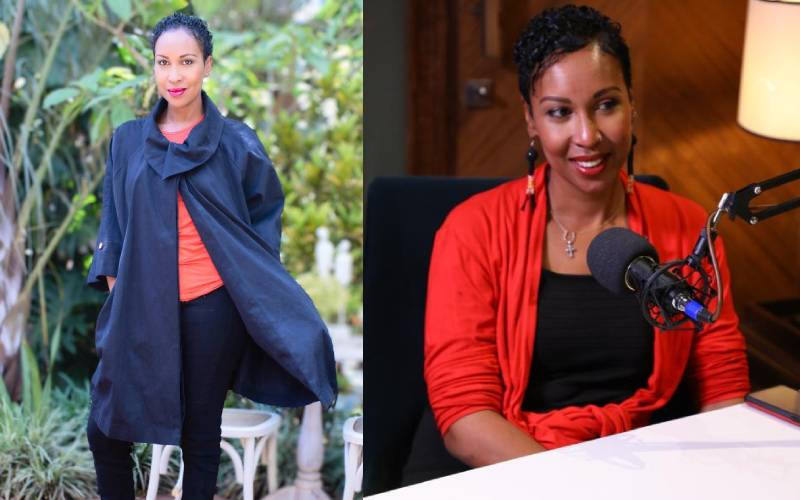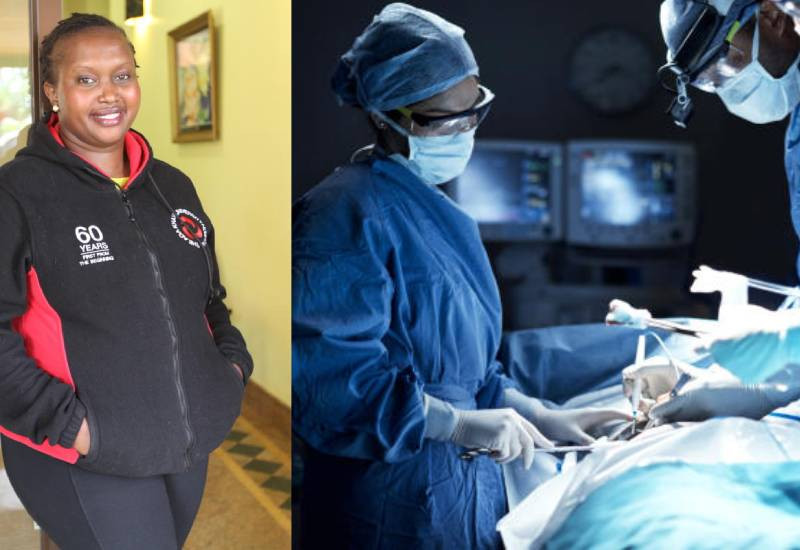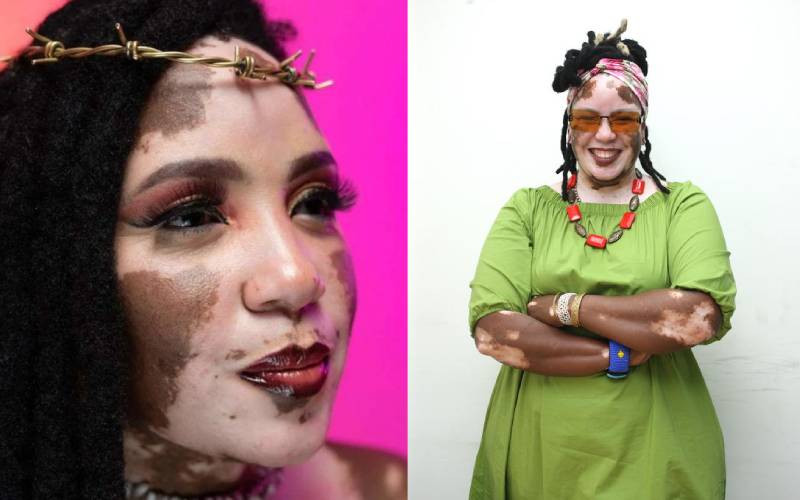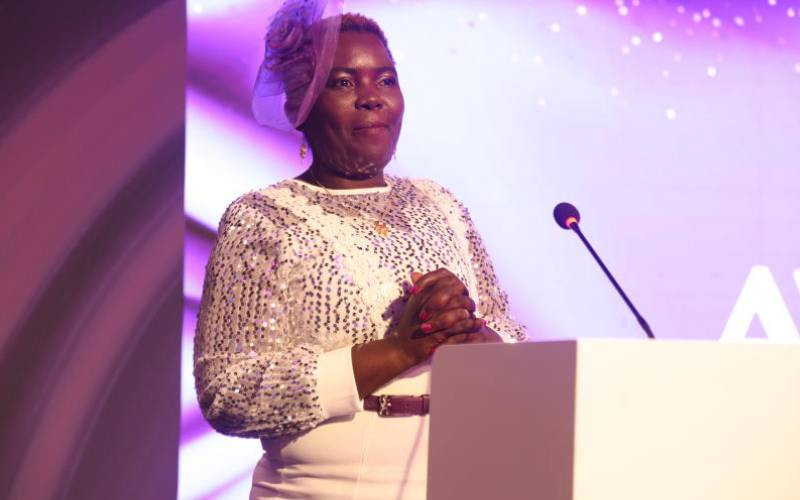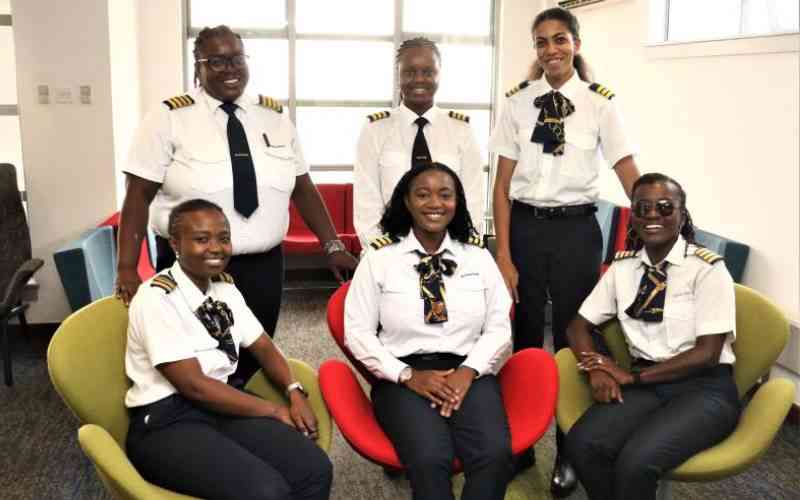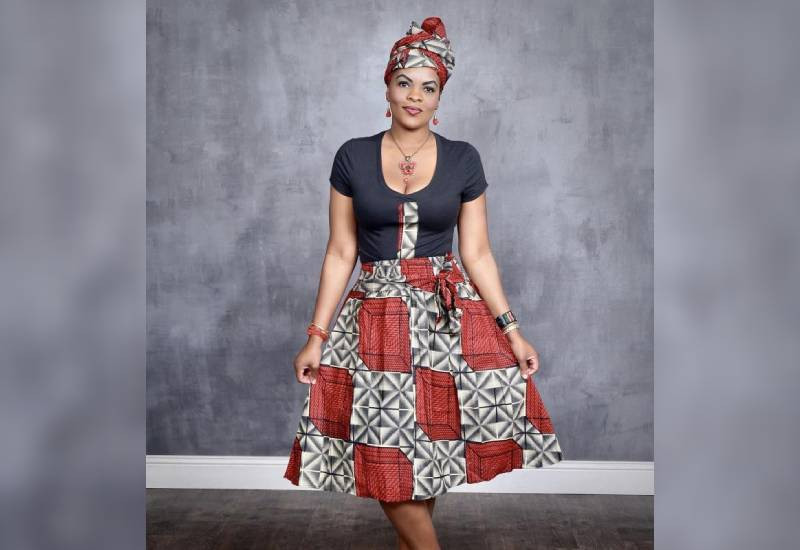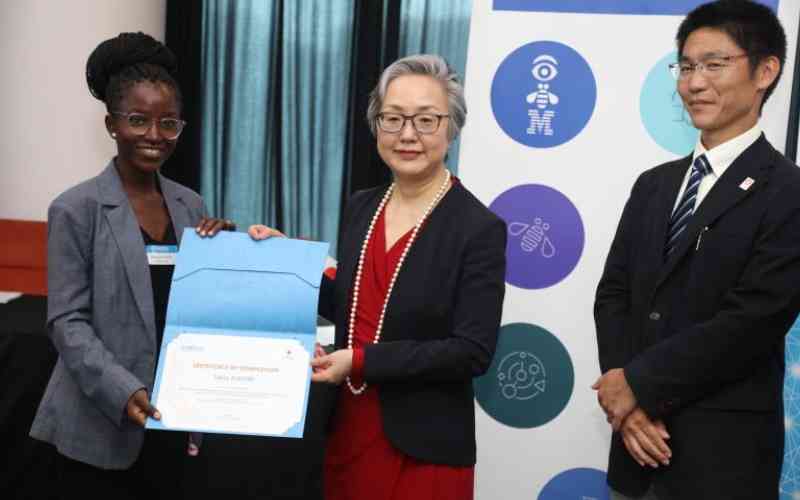
It's hard to imagine one person can go through all what Sally Kwenda has survived; losing two babies, battling depression, surviving cancer, attempted suicide, a failed marriage and living with HIV. We take you through her tumultuous journey.
Sally Kwenda has been through the ringer and some, and even has battle scars to show, but you would not know this by simply looking at her.
In fact, on first meeting her, one cannot help but be drawn into her orbit, she has a liveliness and warmth about her that not only makes other people feel comfortable but that is absolutely contagious. So much so that you may be tempted to believe she has had a pampered life with no tragedies or challenges.
But flying beneath her radar, and undetected to the common eye, is a woman who has risen like a phoenix from the ashes, has overcome the deaths of her two babies, depression, a suicide attempt, a failed marriage, HIV, cancer and has come out guns blazing.
Sally Kwenda, 46, is not your ordinary Kenyan. While most Kenyans head straight home from work or bid their time in the office or in bars as they wait for traffic jam to ease, she heads to Kenyatta hospital to voluntarily patrol the wards in search of a forgotten group of Kenyans known as ostomates.
Now the secretary at Stoma World Kenya, Sally admits that the reason she is very passionate about her cause is because of her own personal experience as an ostomate.
It all began in 2007, when she was diagnosed with Stage 2 cervical cancer and was told her only hope was a surgical procedure known as a hysterectomy to remove her womb (uterus) and the cervix. That procedure that would stop her menstrual cycle and she would never get pregnant. Three years after her diagnosis and 13 surgeries later, a check-up showed that the cancer was spreading to her colon.
“My doctor told me another surgery was inevitable, that they needed to remove part of my colon, but they did not really explain to me what the consequence would be,” Sally says.
She later learnt that because part of her colon had been removed, her bowel motions would no longer be passed out of her body through the anus in the usual way, but through her abdomen using a new opening called the stoma that had been created during surgery. And although for some it is a temporary condition, for some like Sally, it is permanent.
“What I felt after the operation was traumatising, I could not imagine how I was going to continue living a normal life. However, I was introduced to a nurse who specializes in stoma issues. He taught me how to clean and change the colostomy bags, a special disposable colostomy bag which fits over the stoma and sticks to the skin around it. The same nurse facilitated monthly meetings at Aga Khan Hospital for other ostomates and invited me for one,” Sally narrates.
“I will never forget the first meeting I attended. It completely changed the way I looked at my condition. While I had thought I would never live a normal life, I realised it was possible. I met people who had lived with the condition for many years; beautiful women who were still wearing form-fitting dresses and jeans and going about their everyday life despite the condition. We were only six in our first meeting but it was the first time after my operation that I felt hopeful,” continues Sally.
After she was discharged, Sally could not help but wonder if there were other ostomates out there who did not have the proper information about the condition or worse, did not have access to colostomy bags.
“Two weeks after being discharged, I went to Kenyatta Hospital and got the shock of my life. The colostomy patients I found did not have access to colostomy bags. They were using tissue, gauze, paper bags, mattress, diapers, and sheets to cover the stoma, and so you can imagine the stench.
"A colostomy bag makes life bearable because it is adjustable, easy to attach and detach, plus it contains charcoal which retains the bad smell inside the bag. I wanted to cry. Luckily, I had carried some of my own, so I shared my bags with some of them. The visit birthed something in me. I wanted to help,” she says.

Group of angels
The reason most patients do not have the bags is because they cost between Sh600 to Sh1000 each, and in a day, you need about two or three. She has a good medical insurance policy and easily gets the bag, but for someone without medical insurance, it is very costly.
The need to provide support, was what led Sally and her friends to form Stoma World Kenya in 2010. They registered it in 2012.
“When we began, we were only six, now we are over 200 in the group. We have groups in Kenyatta Hospital, Moi Teaching Referral hospital, and in Machakos, Meru, Kijabe, Embu and Nyeri, plus we now want to go to Coast. We have a donor in Canada who sends two free consignments of colostomy bags every year, but we pay the shipping cost which amounts to Sh. 300,000 for each consignment. It is very expensive since most of our members cannot even afford the Sh. 1500 membership fee, but we manage by God’s grace,” she says.
Apart from financial limitations, one of the biggest challenges the group faces is the loss of members. “We have lost many members, because many ostomates have cancer. There was a time we lost three members in a week. Other times, we are faced with gut-wrenching tales of patients who experience rejection from family. One member’s husband would open windows whenever she walked in a room claiming that she was making the house stink. In fact, she wouldn’t want to leave the monthly meetings we had because she didn’t want to go home and face him. She passed away and her husband didn’t let us attend her funeral.”
Still standing
Sally has taken it upon herself to go around educating people about the condition. “Any free time I have, I am either doing house visits, or ward rounds to distribute free colostomy bags. I also give my contacts and give free counseling to family members of ostomates. I am learning to separate Sally from Stoma World Kenya so I do not become emotionally overwhelmed,” she says.
Apart from Stoma Kenya where she volunteers, Sally works as a health promoter for an NGO. Unfortunately at the end of the year, they will be handing over to the government and so she will probably lose her job. Although she is scared about the future, she is also hopeful that God will make a way.
“I am still standing, defiant and hopeful. After I got married, my husband and I lived in Mombasa and for a while everything was going well until I had a miscarriage after seven months, and my second child Jack only lived for two months.
"When I thought I could not deal with anything more, I was diagnosed with HIV in the 90s when there still was no medication for the condition. I went into depression and did not eat or sleep for days. I convinced myself that the only option was to end my life, so, I boarded the Mombasa Ferry and when it reached the deep waters, I Jumped off knowing very well that I could not swim.
"However, that day God reached down and saved my life because for some reason or the other, I could not drown no matter how hard I tried, and before I was rescued, I heard God. He told me to go save his people and show love. I am still here and I have made it my life’s purpose to show love,” she says.
“My marriage was not a good one and we often separated and got back together, and at one point he even brought another woman to our marital bed. Even though I thought I would die of heartbreak, I did not.
"When he got sick, I moved back home and took care of him as best as I could. It was hard, I cried a lot and was on anti-depressants but I decided to show him love. He eventually died in 2012. I attended the funeral and used it as a platform to create awareness about HIV and Aids. If God has seen me through all the above, I know I will be okay.”
When it comes to dating, Sally says she gets her share of interest. “I am beautiful and I still have men who want me, but I set the record straight right from the word go that I have HIV, I cannot have children, I have colon cancer and I have a colostomy bag.
"I am currently in a relationship for the last three months. I have accepted myself as I am, if God wanted to cure me, he would have healed me; God can either heal you, or give you the grace to live with a condition, and that is what he has done for me.”
 The Standard Group Plc is a multi-media organization with investments in media platforms spanning newspaper print
operations, television, radio broadcasting, digital and online services. The Standard Group is recognized as a
leading multi-media house in Kenya with a key influence in matters of national and international interest.
The Standard Group Plc is a multi-media organization with investments in media platforms spanning newspaper print
operations, television, radio broadcasting, digital and online services. The Standard Group is recognized as a
leading multi-media house in Kenya with a key influence in matters of national and international interest.

